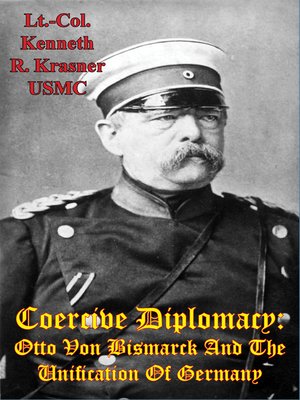Coercive Diplomacy
ebook ∣ Otto Von Bismarck And The Unification Of Germany
By Lt.-Col. Kenneth R. Krasner USMC

Sign up to save your library
With an OverDrive account, you can save your favorite libraries for at-a-glance information about availability. Find out more about OverDrive accounts.
Find this title in Libby, the library reading app by OverDrive.



Search for a digital library with this title
Title found at these libraries:
| Library Name | Distance |
|---|---|
| Loading... |
Otto von Bismarck, Prussia's "Iron Chancellor," was arguably the dominant political figure in Europe during the nineteenth century. With acute political moves, he adroitly manipulated opportunities to achieve European hegemony for Germany and, thus, considerably altered Europe's political scene and balance of power. As the principal architect of German unification, he utilized subtle diplomacy, the formation of alliances, Prussia's formidable army, and a series of calculated—albeit limited—wars against his European neighbors to create Germany's second empire. As the archetypical statesman who espoused the power of the state in the international system, Bismarck recognized that a successful foreign policy and national strategy required the conscious integration of force and diplomacy in order to achieve his overarching goal of German unification. His political leadership thus succeeded because he understood that the use of force was a complement, and not alternative, to diplomacy. This paper examines Bismarck's manipulation of diplomatic and military instruments of national power to achieve his political goal, concluding that the fusion of force and diplomacy was the essence of Bismarck's statesmanship.







